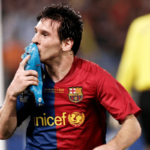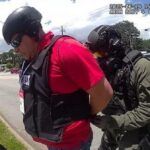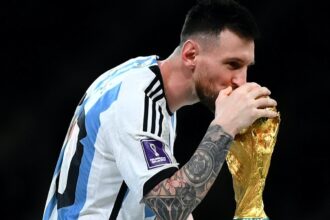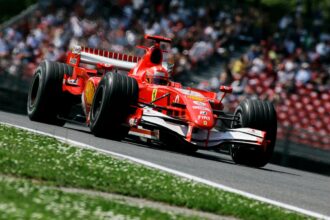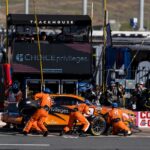The recently deceased Pope Francis, born Jorge Mario Bergoglio in the Flores neighborhood of Buenos Aires, always carried with him a deeply Argentine passion: a love for soccer.
Although he described himself as a “pata dura”—a popular Argentine expression for someone with little skill on the field—the sport shaped his childhood, his cultural identity, and even part of his pastoral message.
Childhood, potrero y San Lorenzo
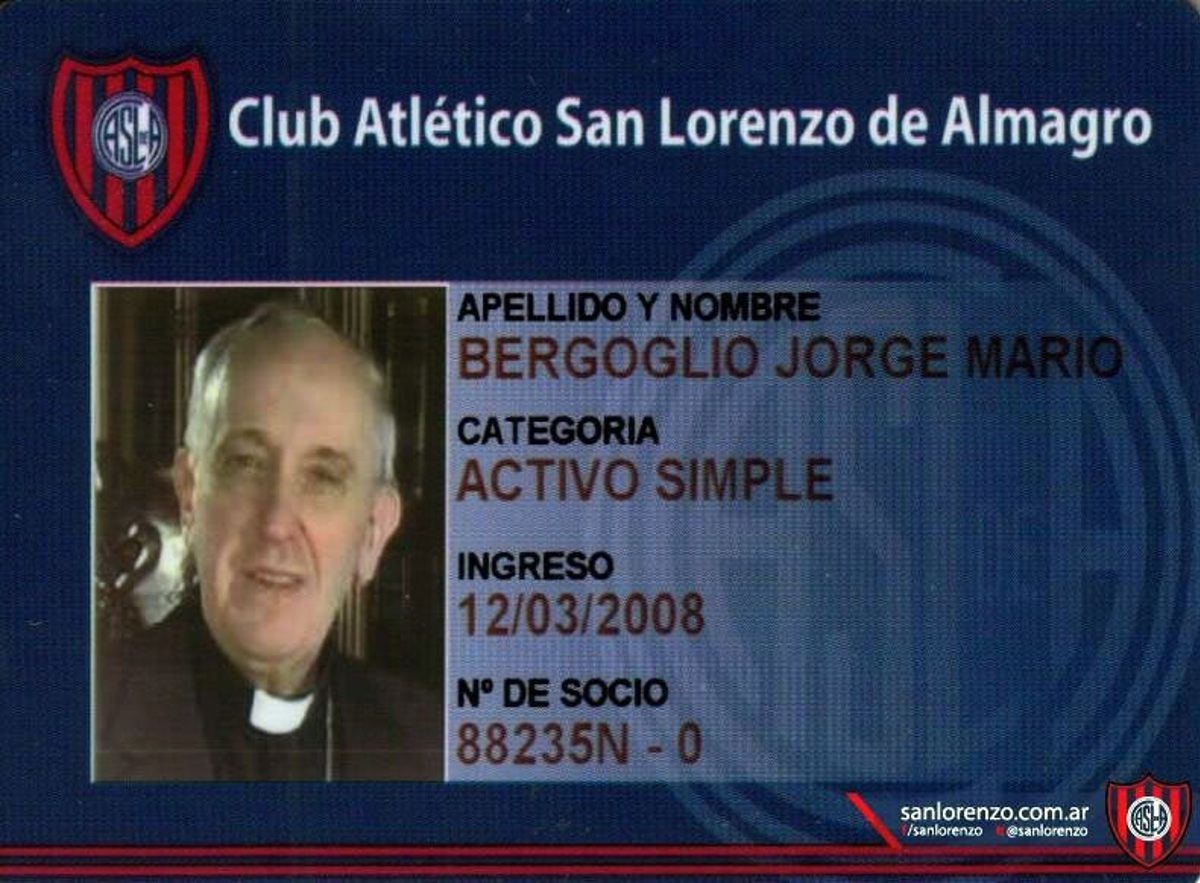
Born on December 17, 1936, Bergoglio spent his childhood during a time when potreros—vacant lots—served as playing fields for millions of children in Argentina.
It was there that he played, mostly as a goalkeeper, and where he developed his deep love for the club San Lorenzo de Almagro, founded in 1908 by a Salesian priest: Father Lorenzo Massa.
In his autobiography “Esperanza” (2025), based on conversations with journalist Carlo Musso, Pope Francis fondly recalled:
“In Buenos Aires, those of us who didn’t play well were called ‘pata dura.’ But I still played. I loved being on the field, even if it was just in goal.”
His devotion to San Lorenzo was solidified in 1946, when the team won the Argentine championship.
Still a boy, Bergoglio memorized the full lineup of that squad and would recite it for decades.
He especially admired forward René Pontoni, whom he called his “favorite player.”
A fan in the Holy See
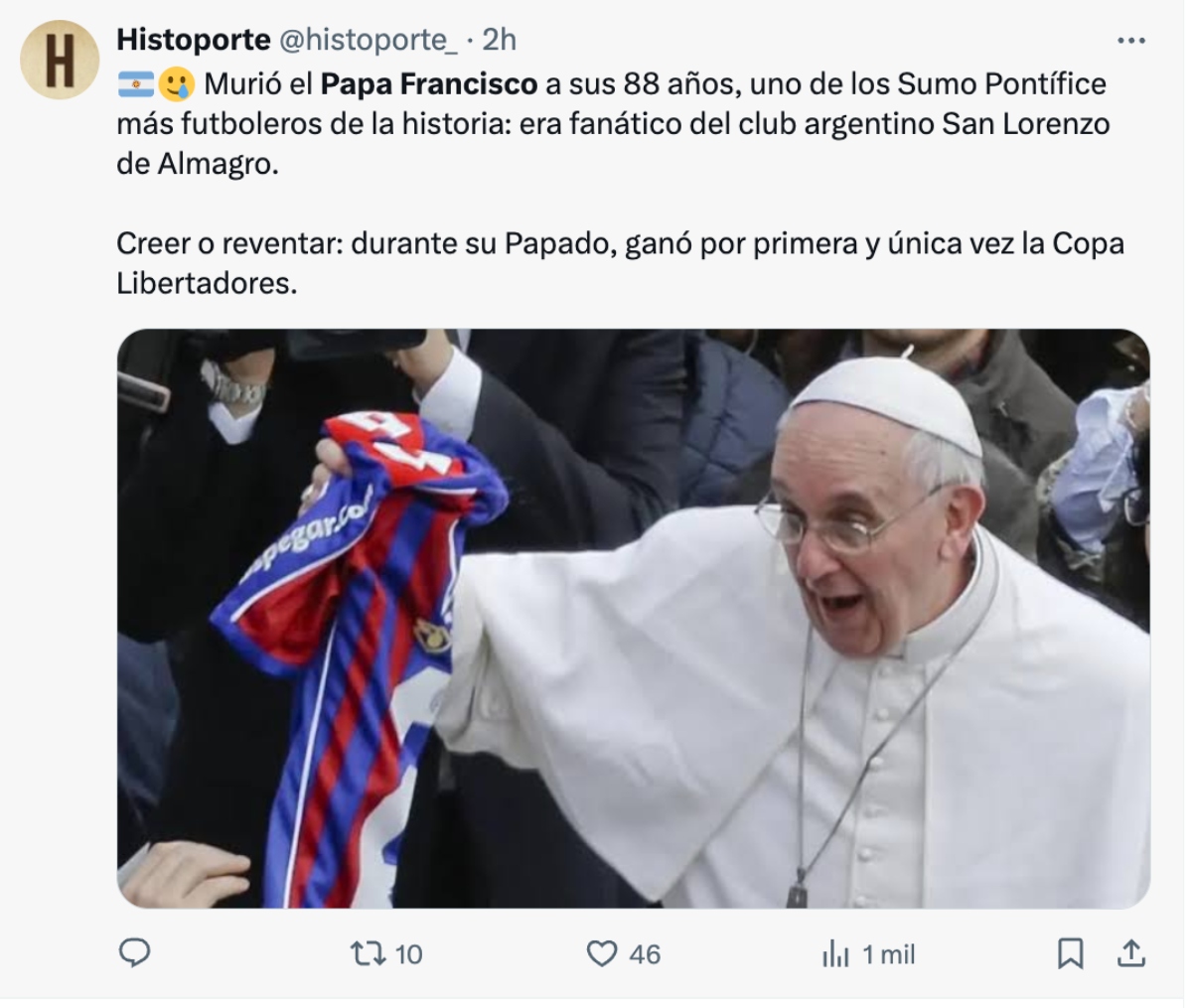
As pope, Francis broke protocol by receiving club jerseys, welcoming sports delegations, and enthusiastically greeting those who wore the blue and red colors of El Ciclón.
Today, a statue of him dressed in a white cassock and a blue-and-red scarf is displayed at the San Lorenzo museum inside the Nuevo Gasómetro stadium.
In 2014, he experienced one of his most emotional moments as a fan: San Lorenzo won the Copa Libertadores for the first time, the most prestigious trophy in South American football.
A delegation from the club traveled to Rome with the trophy, and goalkeeper Sebastián Torrico personally handed him his gloves.
The club’s then-president, Matías Lammens, recalled that the pope had woken up at 4:00 a.m. to find out the match result.
His passion for the Albiceleste
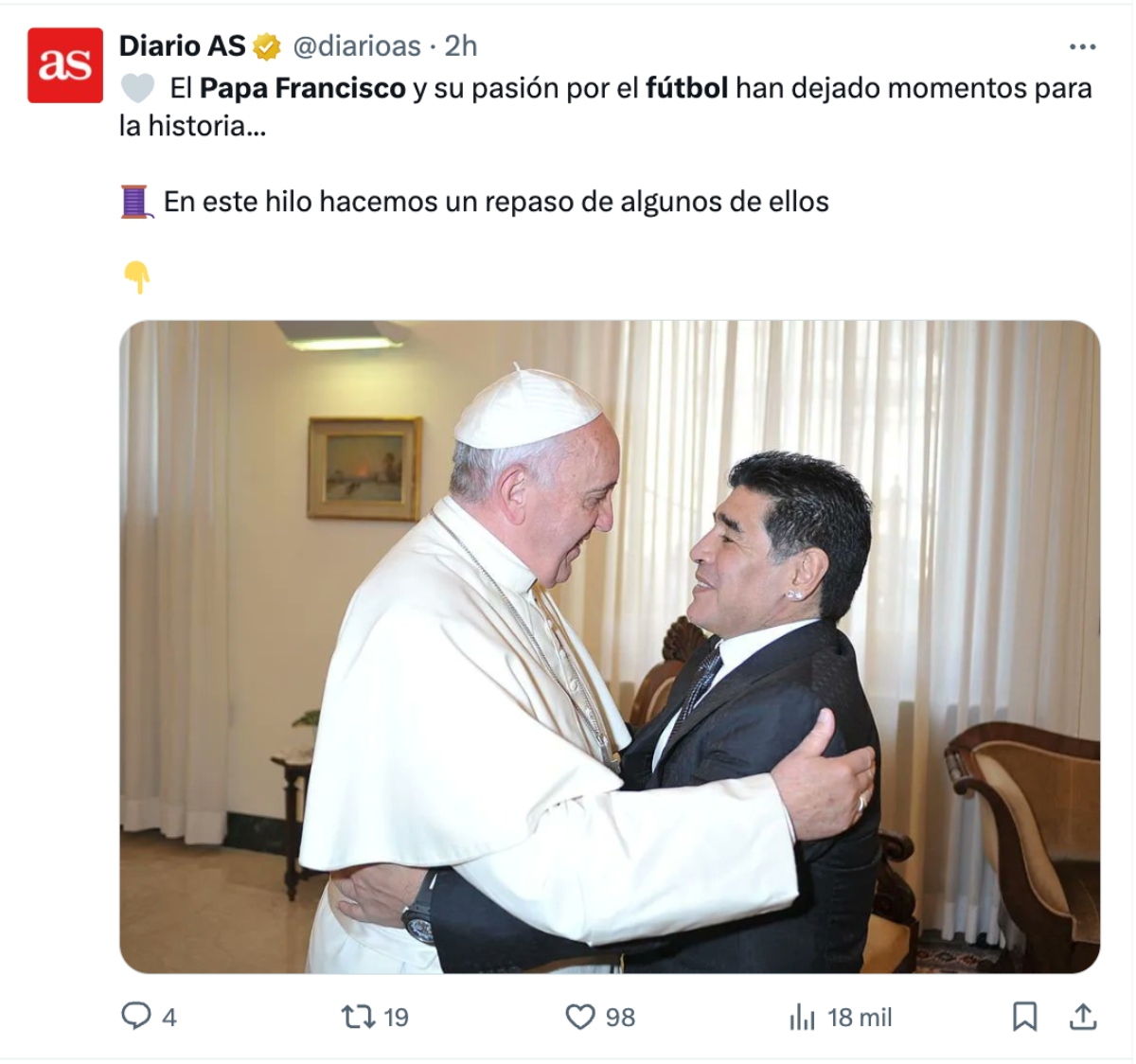
Francis also celebrated the successes of the Argentine national team, including their World Cup titles in 1978, 1986, and 2022.
He had a special admiration for Diego Maradona, even jokingly asking him once, “Which hand was it?” in reference to the famous “Hand of God” goal.
In interviews and books, he described Maradona as “a poet on the field,” while also acknowledging his fragility off the pitch.
He was also close to other global football stars, such as Lionel Messi, Gianluigi Buffon, and Omar Sívori, to whom he was distantly related.
Sport as a school of life
In Buenos Aires, those of us who didn't play well were called 'hard-legged.' But I still played. I loved being on the field
Enter citation here...
In addition to soccer, Francis also played basketball in his youth.
As pope, he promoted sports as a tool for inclusion, character development, and social peace.
He even sent a recorded message to Super Bowl 2017, highlighting the values of friendship and solidarity that are inherent to sports.
“Sports help us look beyond ourselves, work as a team, and respect the rules. They teach us to win with humility and to lose with dignity,” he often stated in his addresses.
A spiritual legacy… and a sporting one
Jorge Bergoglio will be remembered not only as the first Latin American and Jesuit pope, but also as the pontiff who never hid his love for football.
His way of communicating with the world included sports metaphors, references to players, and a simple, relatable style rooted in everyday life.
As an Argentine, as a fan, and as a spiritual leader, he also evangelized through sport—reminding us that the game can be a message, a bridge, and a source of comfort.
For more news, visit QuéOnnda.com.




